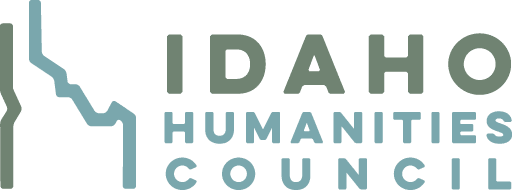The Fierce Urgency of Now: Lyndon Johnson and the Great Society
Thirty-nine Idaho teachers of all grades and disciplines attended the Idaho Humanities Council’s 2016 weeklong summer institute The Fierce Urgency of Now: Lyndon Johnson and The Great Society, July 17-22, on the campus of Boise State University. The institute was made possible by the IHC’s Endowment for Humanities Education and a grant from the Whittenberger Foundation.
Teachers received the main institute text: The Fierce Urgency of Now: Lyndon Johnson, Congress, and the Battle for the Great Society by Julian E. Zelizer and an electronic compilation of articles and other pertinent excerpts. In addition to attending daily lectures and panel discussions, teachers attended special evening presentations, viewed documentary films, explored the Frank Church archives, and shared ways of teaching Lyndon Johnson and the Great Society in the classroom.
Between November 1963 when Lyndon Johnson suddenly took the oath of office and November 1966 when his Democratic Party was routed in mid-term elections, Johnson drove passage of the Civil Rights Act, the Voting Rights Act, the War on Poverty program, Medicare and Medicaid, immigration reform, aggressive opportunities for public education and college education incentives, federal investments in public transportation, and a raft of consumer and environmental protection acts that collectively were referred to as “The Great Society.”
In three years, Johnson and Congress enacted legislation for New Deal-type programs that benefitted the poor and advanced opportunity for middle class Americans. Although today many of Johnson’s programs are often denigrated by some as examples of government over-reach, the Great Society was transformative politically and culturally for America. Today, members of Congress still argue over the efficacy of Johnson’s agenda and the legacy of big government programs.

With the 50th anniversary of the Vietnam War upon us, this institute also explored how Cold War strategies and fears of communism compelled leaders to commit to a war in Southeast Asia right at the moment of commitment to a massive agenda of new domestic programs.
Lead scholars were Sheyda Jahanbani, Assistant Professor of History, University of Kansas, and Mark Atwood Lawrence, Director of Graduate Studies and Associate Professor of History at the University of Texas at Austin. Other presenters included Marc Johnson, independent scholar, presenting to the public on LBJ in the Senate, and to the teachers about the Congress of the 1960s; Sara Dant, Professor of History, Weber State University, Ogden, Utah, presenting on Environmental Policy and the Wilderness Act; Jill Gill, Chair, History Department, Boise State University, presenting on LBJ and Vietnam; Rod Gramer, president of Idaho Business for Education and co-author of Fighting the Odds: The Life of Senator Frank Church; and David Adler, President of The Alturas Institute, presenting to the public on The Vietnam War and Civil Liberties. The keynote on Monday, July 18, 2016 was presented to the public by Julian Zelizer, Professor of History and Public Affairs at Princeton University, and author of The Fierce Urgency of Now: Lyndon Johnson, Congress, and the Battle for the Great Society.
Three public programs by Marc Johnson, Julian Zelizer, and David Adler were well attended by the Boise general public. Sample comments from the evaluations:
The Humanities Council Teacher Institute is one of the highlights of my year. Thank you all for the hard work you all put in to give us this wonderful opportunity. I will return to my classes this year with renewed energy and knowledge.
This has been a uniquely amazing experience. The days were long and full of information and ideas, the researchers and professors were fascinating, the facilities and organization of the days was superb, and my colleagues were inspirational. This is a treasure to have here in Idaho and I intend to keep coming back now that I have discovered this. Thank you! This is one of the best academic experiences of my career. I will be forever grateful for this week’s opportunity.
Thank you for this amazing professional development that not only enriches our brains but, additionally, makes our teaching souls sing and our educator hearts happy. I feel refreshed and re-energized when I leave such outstanding learning.
This was a phenomenal week. I want you to know that this Institute was worthy of national recognition.
I am so thankful to have been a part of this institute. Not only did it broaden my own understandings, but it will be helpful in my teaching, diving deeper into the cause and effects of events in history.
At the beginning of the workshop, someone made the comment that these councils are life changing. I agree. The scholars were superlative. I have always loved going to school and this was like attending an ivy league.
